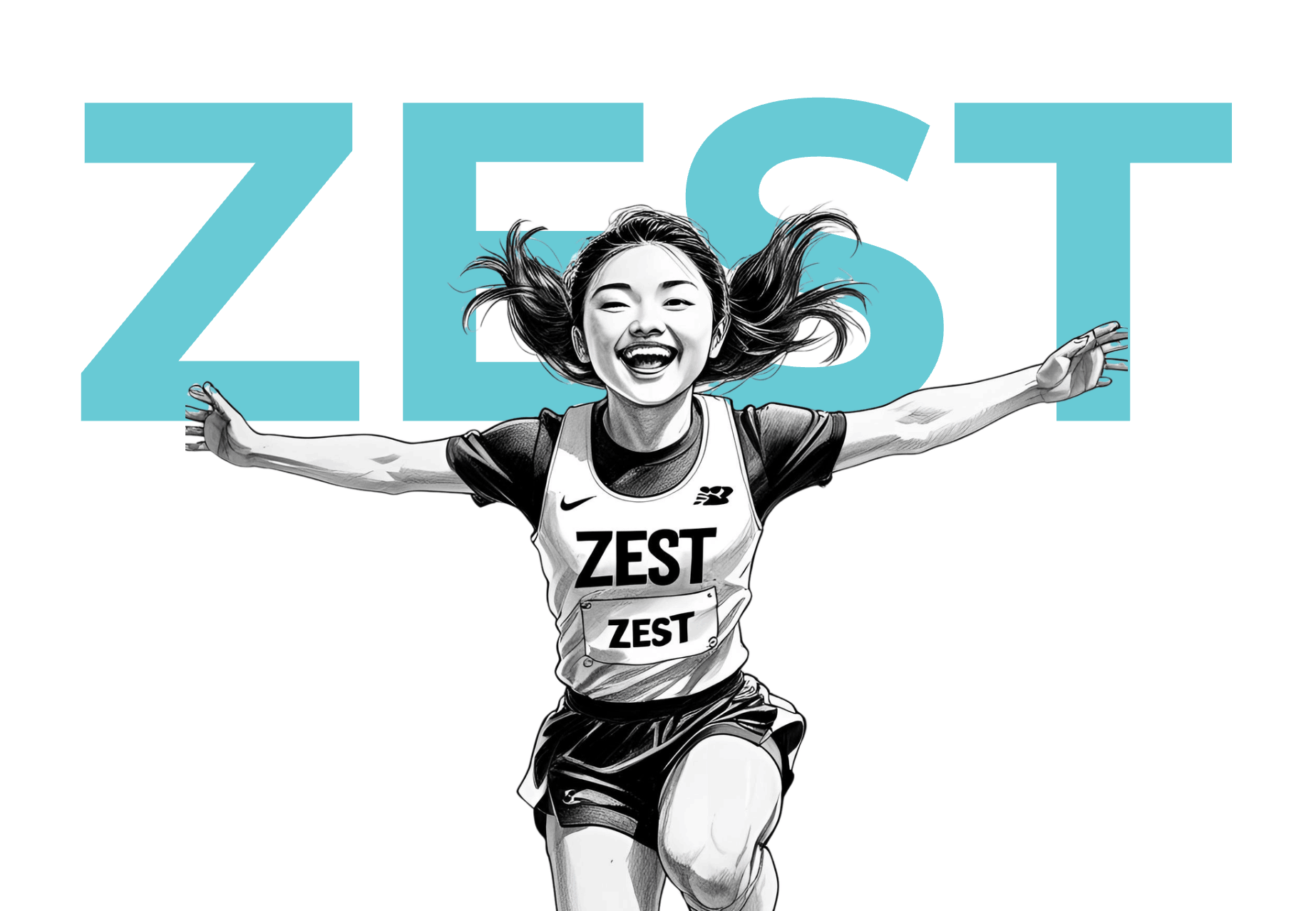
ELITE ATHLETE | PERFORMANCE COACH | P.E. TEACHER
“One of the secrets to peak sports performance is to cultivate purposeful aggression through relaxation—an oxymoron that unlocks the path to achieving your fullest potential.” Marlon Devonish MBE OLY.
Over 20 years of competing against the best in athletics, I was always striving to improve. In just over 10 seconds, I needed to explode into action, be aggressive yet in control, and push myself to my limits while remaining completely relaxed. There’s no time to think; everything must happen at a subconscious level, executed with supreme control and confidence. So, how do we express and build true confidence?
Practice with a Purpose in Mind
It may seem old-fashioned, but there is no substitute for practice. Every successful person I’ve met in sport, business, and education has worked hard. However, elite performers practice with clearly defined goals. Train with the same mentality you wish to bring to competition.
At an elite level, everyone can work hard. The key is to emotionally combine that effort with the physical aspect. Understand the purpose of your practice and how it will enhance your performance, then focus on that goal. The clearer and bigger your goal, the more effectively you can channel your practice time into positive results. As you approach the starting blocks, an important meeting, or an exam, you want to feel prepared and focused on a pre-defined goal.
Surrender to Your Nerves
Nerves are natural reactions to stressful situations. In fact, when channeled correctly, nervousness can prepare your body and mind for peak performance. One step that made a significant difference to my performance was learning to surrender to my nerves. My coach, Dan Pfaff, emphasized this concept, and it has resonated with me since. Acknowledging and accepting your nerves can turn them into an advantage. Trying to fight or suppress nervousness only fuels anxiety. By asking yourself the positive intention behind your nerves, you can embrace them and use that energy effectively.
Research supports this approach. A study published in the Journal of Experimental Psychology found that athletes who accepted their anxiety were more likely to perform well, highlighting the importance of mindset in overcoming nerves.
Focus on Your Own Plan
Amidst nerves, anticipation, and external voices, it can be easy to get distracted. While waiting in the call-up room, surrounded by competitors and sensing the outside pressure, it’s crucial to stay focused on your own plan. Concentrate on what you can control and acknowledge elements outside your control, but keep your attention on your goals.
Look After Yourself
It’s natural for athletes to care for their bodies, but it’s equally important to be in peak condition mentally and emotionally. I work with many academically gifted students at BISS Puxi, and I’m often impressed by their ability to balance health, study, and fitness. This holistic approach, ingrained at a young age, sets them up for future success.
Visualise Greatness
Top athletes use visualization as a powerful tool for performance. Similarly, business executives and educators are adopting these techniques to excel. In athletics, I would vividly picture the entire race: the smell of the track, the sound of the crowd, the feel of the competition, and the taste of sweat mixed with my favorite energy drink. The mind cannot distinguish between an imagined experience and reality, which is why visualization is so impactful.
Take a moment to visualize a challenging situation in which you need to be confident. Picture yourself succeeding, experiencing all the senses involved. This practice can be incredibly beneficial.
Practice, Practice & Practice Some More
Your body and mind are like muscles; they need regular workouts. When I work with students at BISS Puxi, I focus as much on psychological readiness as on physical training. The techniques discussed here are not quick fixes but tried-and-tested methods for achieving peak performance that require dedication and repetition.
Peak performance involves a focused determination to excel, achievable only by surrendering to your nerves and channeling them positively. The real work is done at a subconscious level.
We prepare students for sports activities and competitions worldwide, but these tools extend beyond athletics. The goal is for them to be confident in sports, to handle exam nerves, to excel in university interviews, and to navigate their careers while surrendering to nerves and following their own plans for peak performance.
In addition to the strategies outlined, there are several other powerful techniques that can enhance confidence:
Affirmations and Positive Self-Talk: The impact of positive affirmations and constructive self-talk can significantly boost confidence levels.
Setting Incremental Goals: Breaking larger goals into smaller, achievable steps can foster a sense of accomplishment and build confidence over time.
Feedback Mechanism: Seeking constructive feedback from coaches or peers is essential for growth and reinforcing confidence.
Mindfulness and Breathing Techniques: Incorporating mindfulness practices and breathing exercises can help manage nerves and promote a confident mindset.
Stay tuned as we dive deeper into these valuable strategies that can further elevate your confidence! Next week, we will explore D for Decision Making. See you then!
Over 20 years of competing against the best in athletics, I was always striving to improve. In just over 10 seconds, I needed to explode into action, be aggressive yet in control, and push myself to my limits while remaining completely relaxed. There’s no time to think; everything must happen at a subconscious level, executed with supreme control and confidence. So, how do we express and build true confidence?
Practice with a Purpose in Mind
It may seem old-fashioned, but there is no substitute for practice. Every successful person I’ve met in sport, business, and education has worked hard. However, elite performers practice with clearly defined goals. Train with the same mentality you wish to bring to competition.
At an elite level, everyone can work hard. The key is to emotionally combine that effort with the physical aspect. Understand the purpose of your practice and how it will enhance your performance, then focus on that goal. The clearer and bigger your goal, the more effectively you can channel your practice time into positive results. As you approach the starting blocks, an important meeting, or an exam, you want to feel prepared and focused on a pre-defined goal.
Surrender to Your Nerves
Nerves are natural reactions to stressful situations. In fact, when channeled correctly, nervousness can prepare your body and mind for peak performance. One step that made a significant difference to my performance was learning to surrender to my nerves. My coach, Dan Pfaff, emphasized this concept, and it has resonated with me since. Acknowledging and accepting your nerves can turn them into an advantage. Trying to fight or suppress nervousness only fuels anxiety. By asking yourself the positive intention behind your nerves, you can embrace them and use that energy effectively.
Research supports this approach. A study published in the Journal of Experimental Psychology found that athletes who accepted their anxiety were more likely to perform well, highlighting the importance of mindset in overcoming nerves.
Focus on Your Own Plan
Amidst nerves, anticipation, and external voices, it can be easy to get distracted. While waiting in the call-up room, surrounded by competitors and sensing the outside pressure, it’s crucial to stay focused on your own plan. Concentrate on what you can control and acknowledge elements outside your control, but keep your attention on your goals.
Look After Yourself
It’s natural for athletes to care for their bodies, but it’s equally important to be in peak condition mentally and emotionally. I work with many academically gifted students at BISS Puxi, and I’m often impressed by their ability to balance health, study, and fitness. This holistic approach, ingrained at a young age, sets them up for future success.
Visualise Greatness
Top athletes use visualization as a powerful tool for performance. Similarly, business executives and educators are adopting these techniques to excel. In athletics, I would vividly picture the entire race: the smell of the track, the sound of the crowd, the feel of the competition, and the taste of sweat mixed with my favorite energy drink. The mind cannot distinguish between an imagined experience and reality, which is why visualization is so impactful.
Take a moment to visualize a challenging situation in which you need to be confident. Picture yourself succeeding, experiencing all the senses involved. This practice can be incredibly beneficial.
Practice, Practice & Practice Some More
Your body and mind are like muscles; they need regular workouts. When I work with students at BISS Puxi, I focus as much on psychological readiness as on physical training. The techniques discussed here are not quick fixes but tried-and-tested methods for achieving peak performance that require dedication and repetition.
Peak performance involves a focused determination to excel, achievable only by surrendering to your nerves and channeling them positively. The real work is done at a subconscious level.
We prepare students for sports activities and competitions worldwide, but these tools extend beyond athletics. The goal is for them to be confident in sports, to handle exam nerves, to excel in university interviews, and to navigate their careers while surrendering to nerves and following their own plans for peak performance.
In addition to the strategies outlined, there are several other powerful techniques that can enhance confidence:
Affirmations and Positive Self-Talk: The impact of positive affirmations and constructive self-talk can significantly boost confidence levels.
Setting Incremental Goals: Breaking larger goals into smaller, achievable steps can foster a sense of accomplishment and build confidence over time.
Feedback Mechanism: Seeking constructive feedback from coaches or peers is essential for growth and reinforcing confidence.
Mindfulness and Breathing Techniques: Incorporating mindfulness practices and breathing exercises can help manage nerves and promote a confident mindset.
Stay tuned as we dive deeper into these valuable strategies that can further elevate your confidence! Next week, we will explore D for Decision Making. See you then!








